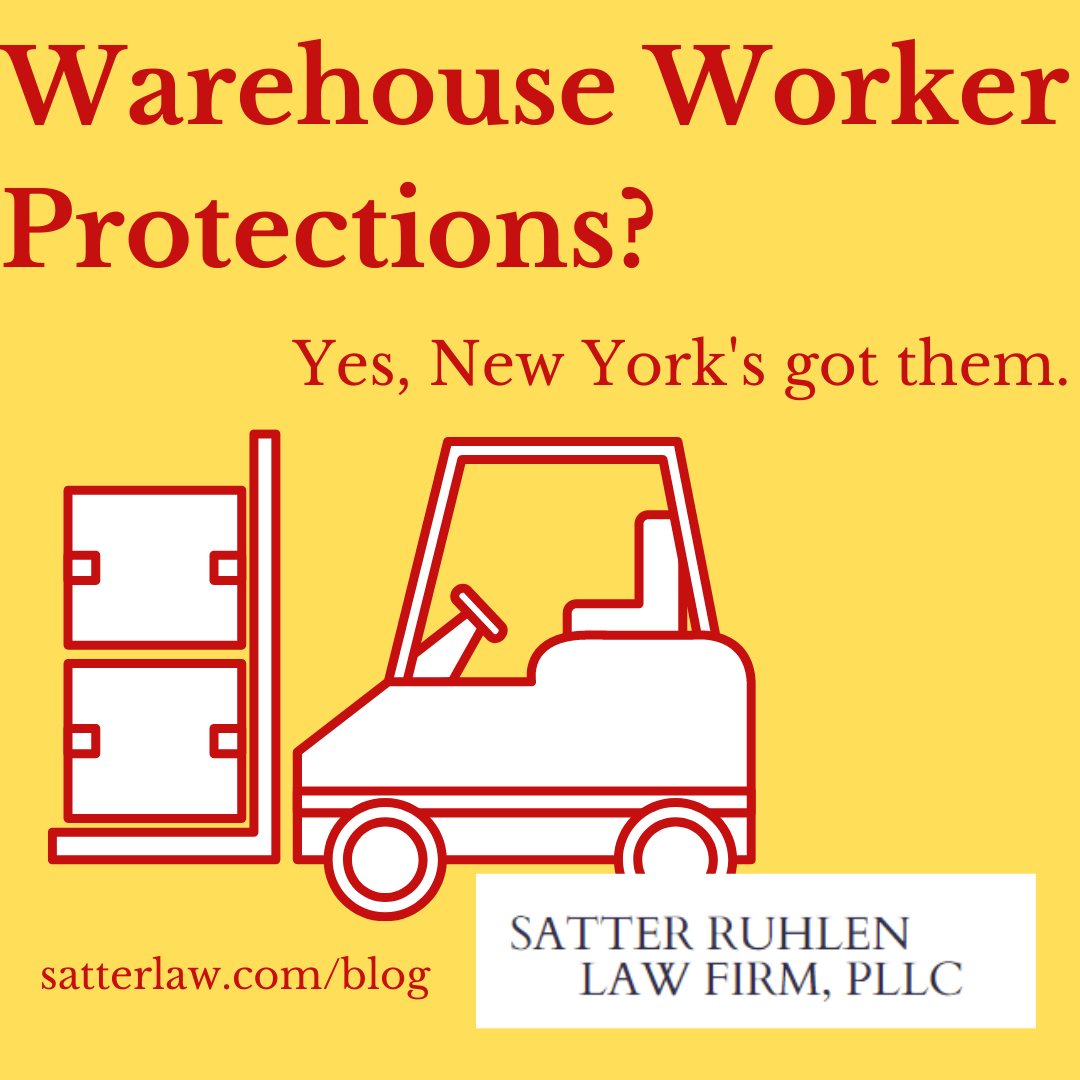
On June 19, Governor Kathy Hochul announced that legislation protecting warehouse workers from unreasonably demanding work quotas is now in effect. New York’s Warehouse Worker Protection Act (WWPA) requires employers to disclose work speed quotas, and protects employees from quotas that don’t include time for rest periods, bathroom breaks, and meals. The WWPA applies to employees at warehouses with more than 100 employees, or employees who work for employers who employ 500 or more employees at multiple warehouses.
Employers are required to provide a written description of quotas when workers are hired, as well as within two business days of a change in quota. It is illegal for employers to retaliate against employees for requesting quota information or filing a complaint. Workers can report violations to the New York State Department of Labor. There are also civil remedies available; individuals should speak with a reputable workplace attorney to determine how to pursue their rights.
If you work in a warehouse and you have questions about the WWPA, it’s a good idea to speak with your union representative or a New York lawyer.

